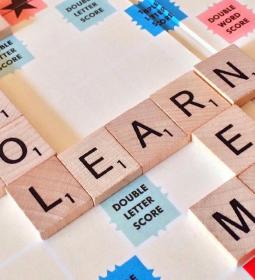Most recently, none of us thought about the notion that "art" can relate not only to painting or music, but also to cooking. However, this is so, moreover, an increasing number of people working in the field of "public catering" are striving to improve their professional level.
Actually, thanks to their enthusiasm and active striving for perfection, this Soviet abbreviation ceases to characterize the restaurant business. Today, we are not ashamed to accept sophisticated foreign guests and demonstrate to them the wonders of culinary art.
Where to study
In the modern educational environment, there are practically no niches left that are left unfilled. In specialized schools they study languages, improve programming and marketing skills, master practical skills in working with technological equipment.
Perhaps you will be surprised, but the culinary schools are now open all over the world, and the number of their listeners is constantly growing. This speaks not only of the high popularity of the profession as such, but also of the constantly rising professional level of those people who become direct participants in the culinary "history": cooks, sommeliers, catering specialists.
Traditionally, among the champions are the culinary schools of Switzerland and the USA. Here you can get training from the basics to obtain a certificate of passing the highest step - the master.
In parallel with the improvement of practical skills, students of culinary schools can get a business education in the line of hotel or restaurant management.
What are the advantages of such educational institutions? First of all, talk about the teaching staff. The collective of teachers consists of culinary experts, recognized masters, in addition, many schools own their own restaurants and agencies, in which students can practice.
Le Cordon Bleu College of Culinary Arts in Chicago
Graduates of the Chicago Culinary Institute work in all corners of the world. Here you can get a certificate and protect a junior degree, go through cooking classes for experimenters and create new recipes.
Kendall College
According to the rating of some agencies, Kendall College is on the 1st place among the educational institutions of restaurant, hotel and tourist management. The richest history (founded in 1934), a variety of training programs, adapted to European and American standards of service, an extensive practical base, help with employment - only a small part of what is offered here to students and graduates.
Culinary Institute Switzerland
Training in this Swiss institute gives the opportunity to master the art of cooking in perfection. The training program is designed for 3 years. Practice is paid, therefore students not only study, but also earn decent money.
Les Roches International School of Hotel Management
Enter this Swiss school can those who cherish the hope of becoming a successful restaurateur. Your dream is very close. At the school you can get a bachelor's degree in business administration. At the end you can make an independent start-up or get a prestigious job in the restaurant business.
Training programs
The advantage of teaching in a cooking school is to get a higher education. This concerns both the level and subjects of the curricula. The content of education is constantly being improved, new directions appear that are promising in the market of services:
- general cooking;
- baking and confectionery;
- catering,
- management (tourist, hotel, restaurant).
A certain degree can only be obtained after completing a full course, the average duration of which is 300-400 hours of theory and 200-300 hours of practice:
- certificate / diploma - from 1 month to 2 years;
- Junior Degree - from 9 months to 2 years;
- Bachelor's degree - 4 years;
- Master's degree - 2 years.
Before passing the final examination, all students must undergo pre-diploma practice. To do this, they can become employees of establishments belonging to an educational institution, or find a place of work on their own.
After the internship, the most distinguished graduates receive recommendations, thanks to which very quickly they find prestigious, highly paid work abroad.







